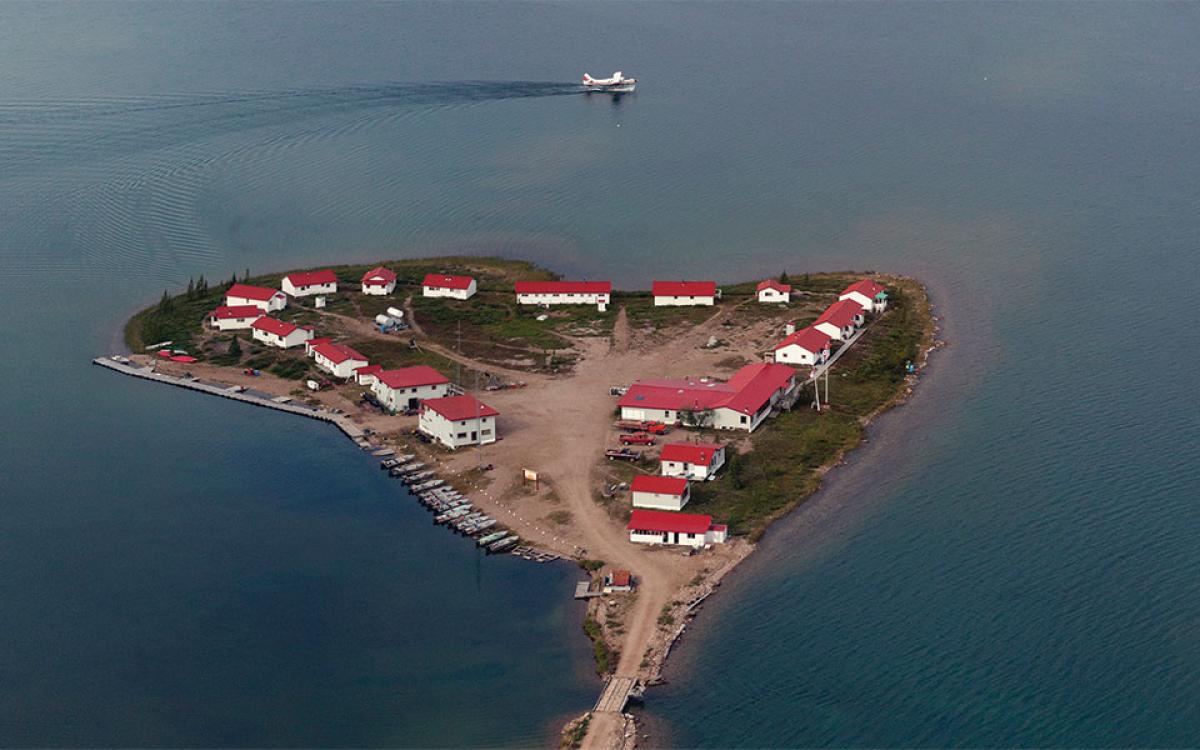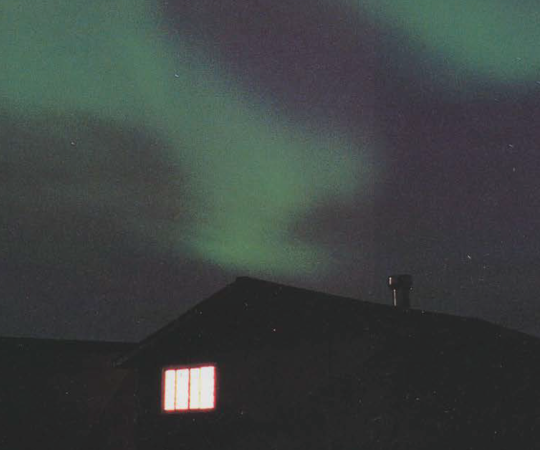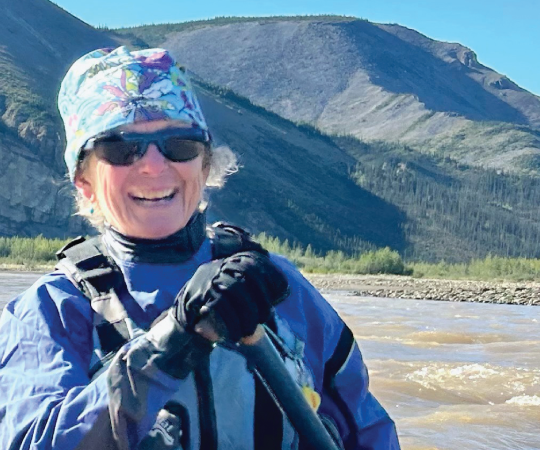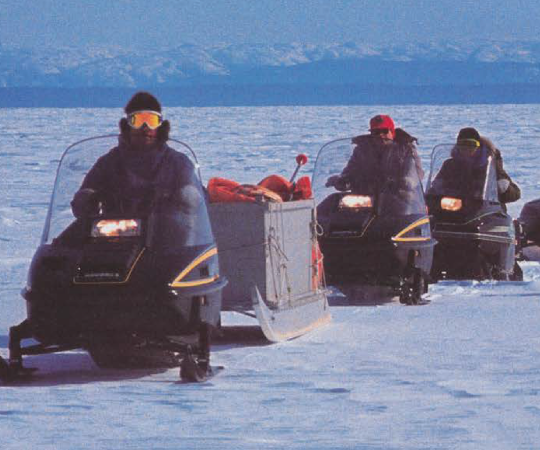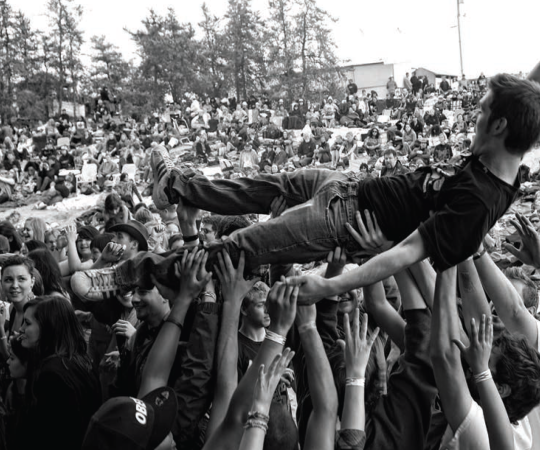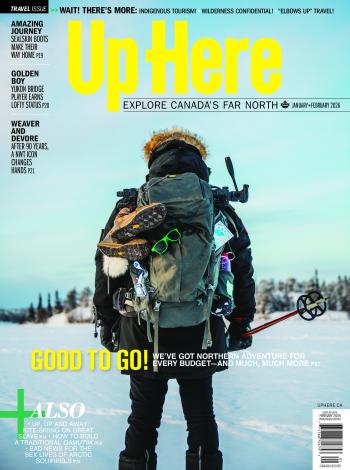“I don’t know that you’re going to catch fish this large anywhere else,” says Shelly Bickett, from California, a smile glued to her face. “Not that easy,” chimes in Rob Nelson. They’re standing on the shores of Wellesley Lake, in the Yukon near the Alaska border.
These two self-professed amateur anglers are nearing the end of a weeklong vacation at a fly-in lodge in the Yukon’s Kluane region. They gush about the bountiful fishing, the perfect weather, the unspoiled landscape and the relaxed pace of the days. Bickett and Nelson had previously travelled to Alaska to fish its rivers, but they hadn’t stayed at such a remote lodge, and been catered to by staff, with all the luxuries you can find in town.
“We’ll be back,” says Bickett.
“Definitely,” adds Nelson.
Brian Dack, the owner of the Kluane Wilderness Lodge, loves to hear these words from his guests. It’s important that the North makes a positive impression because his clientele (primarily Americans) have no shortage of travel options. “They can go fishing anywhere in the world that they want,” he says. “They’re not scraping to come fishing, that’s for sure.”
Although all-inclusive weeklong packages run from a few thousand to more than USD$7,000, there are many reasons why lodges in Canada’s North are at the top of their lists.
The definition of a getaway
“They definitely come for the wilderness, for sure,” says Chummy Plummer, owner of Plummer’s Arctic Lodges, with five locations in the Northwest Territories and Nunavut. “They want to get away from the masses of people.” At Plummer’s lodges—on Great Bear Lake (pictured), Great Slave Lake or the Tree River—his guests are essentially the only people around. “And they really appreciate that.”
When you live in the North, you tend to forget the realities of daily life in the big city: the soul-crushing commutes and the hundreds of rushed and robotic interactions on sidewalks or subways. When the time comes for a holiday, it’s no wonder why people want to get far away from the hustle and bustle.
There aren’t many reminders of the outside world once guests arrive, says Dack, who has been running his lodge for 23 years. “I’ve got repeat guests for as many as 20 years, so that pretty well says everything.” In all that time, he says only five planes have landed on the lake that he hasn’t ordered. “We’re just so far out there,” he says. “That’s a big draw. You can be there all week sometimes and not even see a plane fly over it.”
The call of the North
Joe Scheer has loved fishing since as long as he can remember. That goes back to his childhood in Wichita, Kansas, when he first stumbled across one of his grandfather’s Field & Stream magazines. In it, he read about Great Bear Lodge and a world record lake trout pulled from Great Bear Lake in the 1960s. “I’m pretty sure that’s where the Great Bear Lake mystique for me started,” he says. “I’ve wanted to go there ever since I was a tiny kid.”
Last summer, he finally made it. And it didn’t disappoint. “It was awe-inspiring,” he says. “I actually don’t believe that anything I read about or saw even as a child could have prepared me for the richness of the place, just in terms of the history, the fish, and the water.” Scheer will be returning.
Cast the night away
Depending on when you come and where you go, you could conceivably fish all day and all night.
Starting June 6, Dack’s guests begin to arrive from Whitehorse, typically for a week, to fish for trophy lake trout and Northern pike.Fly-fishers fly in early on for lake whitefish.
At the lodge, Dack’s guests have the ability to come and go on the lake as they please: they can take a boat out for themselves without a guide whenever they want. “When you come to the North and it’s 24 hours of daylight, what are you supposed to do for the other 16 hours?”
The water is unspoiled
Last summer, an Australian travelled from one side of the world to the other to get to Plummer’s Great Bear Lake Lodge. But he wasn’t there just to fish. He came to sample water, surveying various depths at different locations on the lake. “He said it’s the cleanest water he’s seen anywhere in the world,” says Plummer.
The fishing really is that good
At Plummer’s Great Bear Lake Lodge, they catch and release everything—“except a little fish for a shore lunch,” says Plummer. Though the operation is legally allowed to harvest more than that, the guides don’t. “You can take two 50-pounders but we don’t let anyone take anything,” he says. “We really try to look after the resource.” For obvious reasons.
While Scheer first heard about the lake trout at Great Bear, it was his burning desire to fish for Arctic grayling that convinced him to make the trip. Twenty minutes from the lodge, at a spot called Grayling Rock, he got his wish. And later in the week, he took a day-trip to the Sulky River “and just caught spectacular grayling in what is really one of the most beautiful places I’ve ever been in my life.”
“Everybody catches fish,” says Dack. “You know, I don’t think we had a guest last year that didn’t catch one at least 25 pounds.”

